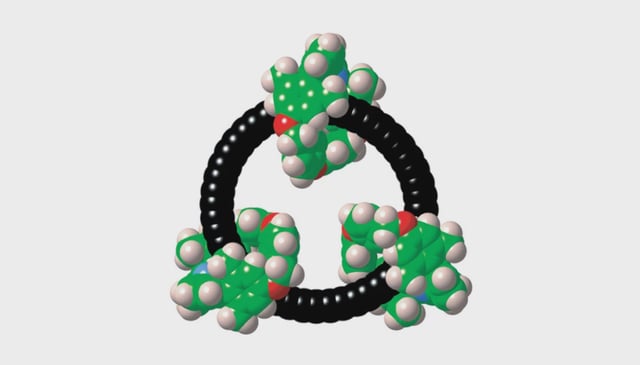Overview
- Researchers embedded a 48-carbon ring within a [4]catenane of three macrocycles to protect and stabilize it at room temperature.
- Solution-phase spectroscopic analysis—including mass spectrometry, NMR, Raman and UV–visible spectroscopy—confirmed the catenane’s presence and stability with a half-life of about 92 hours at 20 °C and concentrations up to 300 µM.
- At much lower concentrations (0.9 µM), an unprotected cyclo[48]carbon was detected via UV–visible spectroscopy with a roughly one-hour lifetime, marking the first indirect evidence of a naked solution-phase cyclocarbon.
- Researchers attribute the unexpected stability mainly to reduced ring strain in the larger 48-atom cycle and to physical encapsulation by the macrocycles.
- This approach paves the way for routine exploration of reactive carbon allotropes under ambient conditions, expanding beyond gas-phase and cryogenic surface synthesis methods.
![Left: Chemical structure of the cyclo[48]carbon [4]catenane. RIGHT: Space-filling representation.](/cdn-cgi/image/onerror=redirect,width=640,height=640,format=webp/https://storage.googleapis.com/uploads.mongoosehq.com/url/media/39553022/6c3674fcd473fd05642db44e4276e64826a8d1749d712d43258bd4df826e6736)
